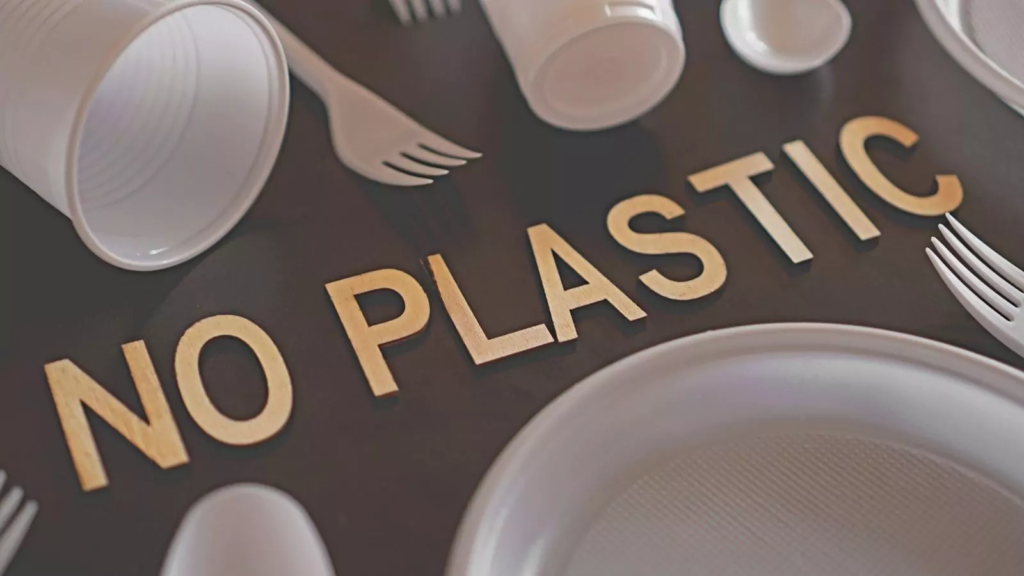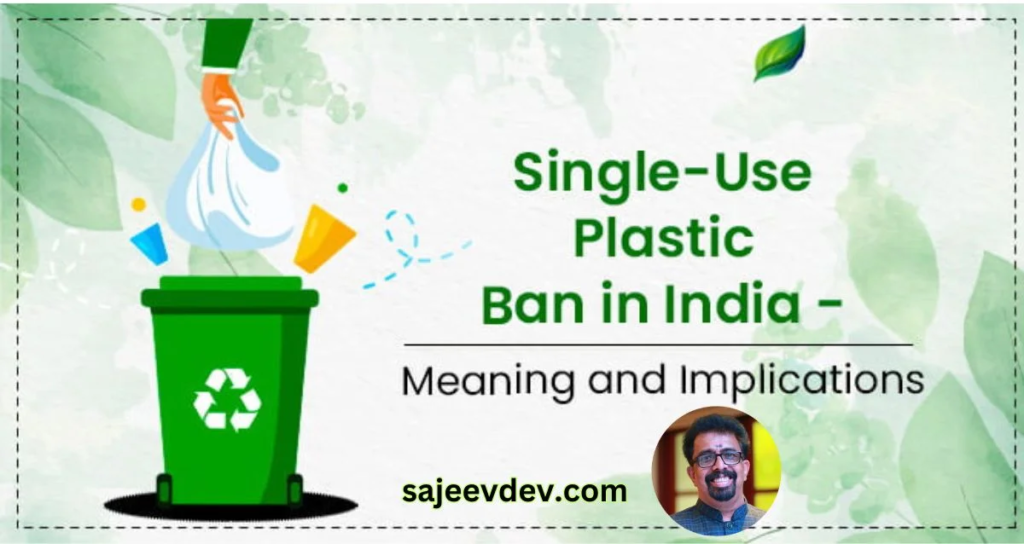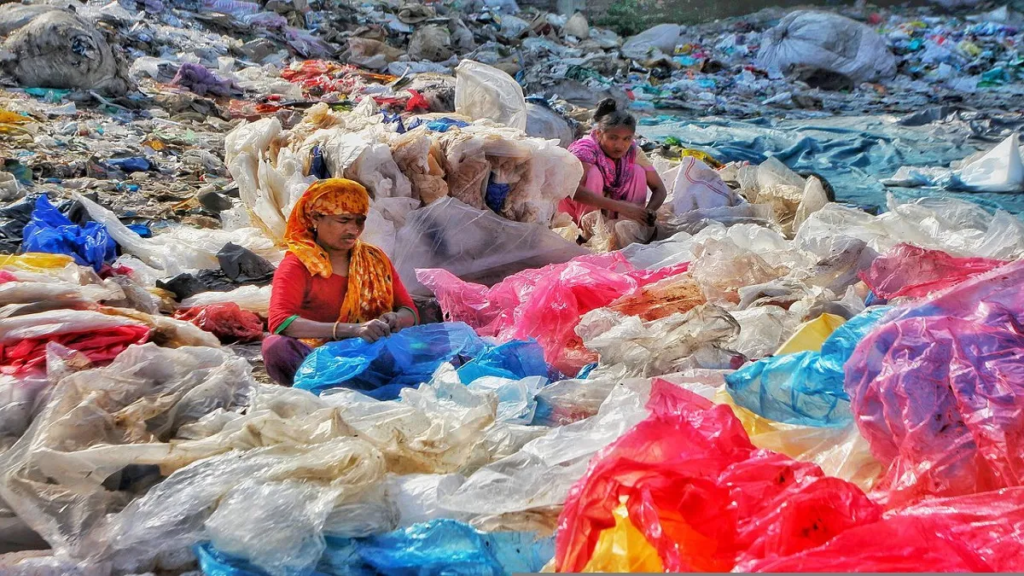In recent years, the movement to curb single-use plastics has been picking up steam across the United States. From plastic bags to straws and foam containers, states and local governments are taking bold steps to reduce the environmental damage caused by these disposable items. Environmentalists are championing sustainable alternatives, but the push for change is meeting resistance from corporations and industry groups who argue that plastic bans could disrupt supply chains and raise costs. As the debate heats up, the nation is at a crossroads in its fight against plastic pollution.

The Growing Push for Plastic Bans
Single-use plastics, designed for convenience and disposability, have become a major environmental concern. Items like plastic bags, straws, utensils, and polystyrene foam containers contribute heavily to pollution, clogging landfills, polluting waterways, and harming wildlife. According to research, less than 10 percent of all plastic ever produced has been recycled, leaving the rest to linger in the environment for centuries.
This alarming reality has fueled a wave of legislation aimed at reducing single-use plastics. As of 2025, eight states—California, New York, New Jersey, Hawaii, Connecticut, Delaware, Maine, and Oregon—have implemented statewide bans on single-use plastic bags. Hundreds of local governments in at least 28 states have also passed ordinances targeting plastic bags, straws, and other disposable items. For example, California’s bag ban, in place since 2016, has reduced plastic bag use by an impressive 70 percent, proving that policy changes can make a difference.
The federal government is also stepping in. In 2022, the Department of the Interior announced plans to phase out single-use plastics on public lands by 2032, following President Biden’s Executive Order on sustainability. More recently, in 2024, the Biden-Harris Administration set a goal to eliminate single-use plastics from federal food service operations by 2027 and all federal operations by 2035. These moves signal a growing recognition that plastic pollution is a crisis that demands action at every level.
Environmentalists Lead the Charge
Environmental groups like Oceana, Greenpeace, and the Surfrider Foundation are at the forefront of the movement, advocating for policies that reduce plastic waste and promote reusable alternatives. A 2022 poll by Oceana found that 84 percent of American voters are concerned about plastic pollution and its impact on oceans and the environment. This widespread support has given environmentalists leverage to push for stronger laws.
One key piece of proposed legislation is the Break Free From Plastic Pollution Act, reintroduced in 2023 by U.S. lawmakers. The bill aims to ban most single-use plastics nationwide and pause new plastic production facilities to address the environmental and health impacts of plastic pollution. Advocates argue that such measures are critical to protecting communities, especially those near petrochemical plants where plastic production contributes to air and water pollution.

In states like New Jersey, grassroots efforts have led to significant victories. At least 46 municipalities in the state have restricted plastic bag use, and a statewide ban on plastic bags, polystyrene containers, and limits on straws took effect in 2022. Environmentalists see these local wins as building blocks for broader change, proving that small-scale action can inspire state and national policies.
The Case for Sustainable Alternatives
As bans take hold, environmentalists and policymakers are promoting reusable and eco-friendly alternatives to single-use plastics. Reusable bags made from canvas or recycled materials, stainless steel or bamboo straws, and compostable food containers are gaining popularity. In Australia, for instance, states have banned plastic straws and cotton buds, replacing them with options like bamboo cotton buds or reusable silicone swabs. Similar shifts are happening in the U.S., with businesses and consumers embracing sustainable choices.
At the University of Colorado Boulder, for example, the Sustainability Council is working to eliminate single-use plastics in campus vending machines, replacing plastic water bottles with aluminum cans or glass bottles. These changes not only reduce waste but also encourage a cultural shift toward sustainability. Many advocates argue that reusable options are not just better for the environment but can also save money in the long run. For instance, bringing your own coffee cup or container to a café can cut down on waste and sometimes even earn discounts.
However, transitioning to alternatives isn’t always straightforward. Studies, like one from the University of Michigan in 2020, show that alternatives like paper or cotton bags need to be reused multiple times—four times for paper, 173 times for cotton—to be more environmentally friendly than single-use plastic bags. This highlights the need for education and infrastructure to support reusable systems effectively.
Corporate Pushback and Industry Arguments
Despite growing public support for plastic bans, the plastics industry and some corporations are pushing back. Groups like the Plastics Industry Association argue that single-use plastics are often more sustainable than alternatives when you consider their full lifecycle. For example, a 2017 Canadian study cited by industry leaders found that 78 percent of plastic bags are reused for purposes like packing lunches or picking up pet waste. They also claim that plastic bags produce fewer emissions than paper or cotton bags during manufacturing.
Industry advocates argue that bans could disrupt supply chains and raise costs for businesses and consumers. The Reason Foundation, a libertarian think tank, has called bans counterproductive, arguing that plastics are a vital part of modern life, used in everything from medical equipment to shipping logistics. They warn that phasing out single-use plastics could limit innovation and increase prices for everyday goods.

During the COVID-19 pandemic, the plastics industry seized an opportunity to slow the momentum of bans. In 2020, the Plastics Industry Association lobbied the Department of Health and Human Services to highlight the “health and safety benefits” of single-use plastics, claiming they were safer than reusable alternatives during the crisis. This led to temporary reversals of bag bans in states like California and Massachusetts, as well as delays in places like Maine and Philadelphia. Environmentalists called this “opportunistic fearmongering,” pointing out that studies showed the coronavirus persists longer on plastic than on other materials.
The Road Ahead: Balancing Progress and Challenges
The debate over single-use plastics is far from settled. While environmentalists celebrate the momentum of bans and the rise of sustainable alternatives, challenges remain. Some states, particularly those with Republican-controlled legislatures, have passed laws to preempt local plastic bans, effectively blocking cities and counties from taking action. States like Florida, Michigan, and Arizona have such “ban bans” in place, creating a patchwork of regulations that complicates enforcement.
Moreover, the socio-economic impacts of plastic bans can’t be ignored. In small island nations like those in the Caribbean, bans have sparked concerns about job losses in industries reliant on plastic production or imports. Similar concerns exist in the U.S., where businesses worry about the cost of transitioning to alternatives. Environmentalists argue that these challenges can be addressed through investment in recycling infrastructure and support for businesses adopting sustainable practices.
The federal government’s role will be crucial moving forward. The Break Free From Plastic Pollution Act, if passed, could set a national standard for reducing single-use plastics. Meanwhile, initiatives like the Regional Marine Litter Management Strategy, inspired by global efforts, emphasize the importance of public education and cooperation between governments, businesses, and communities.
A Call to Action for Consumers
While policymakers and corporations debate, individuals can make a difference. Simple actions like carrying a reusable bag, choosing restaurants that use compostable packaging, or supporting businesses that prioritize sustainability can add up. Environmentalists stress that consumer habits play a big role in driving change. As one advocate put it, “Every time you say no to a plastic straw or bring your own cup, you’re sending a message to businesses and lawmakers.”
The fight against single-use plastics is about more than just banning bags—it’s about rethinking how we produce, use, and dispose of materials in a world with finite resources. As states across the U.S. continue to push for bans and sustainable alternatives, the momentum is clear. But overcoming corporate resistance and building a truly circular economy will require persistence, innovation, and collaboration.
Must Read :- Top 7 Unsolved Mysteries That Still Shock America






